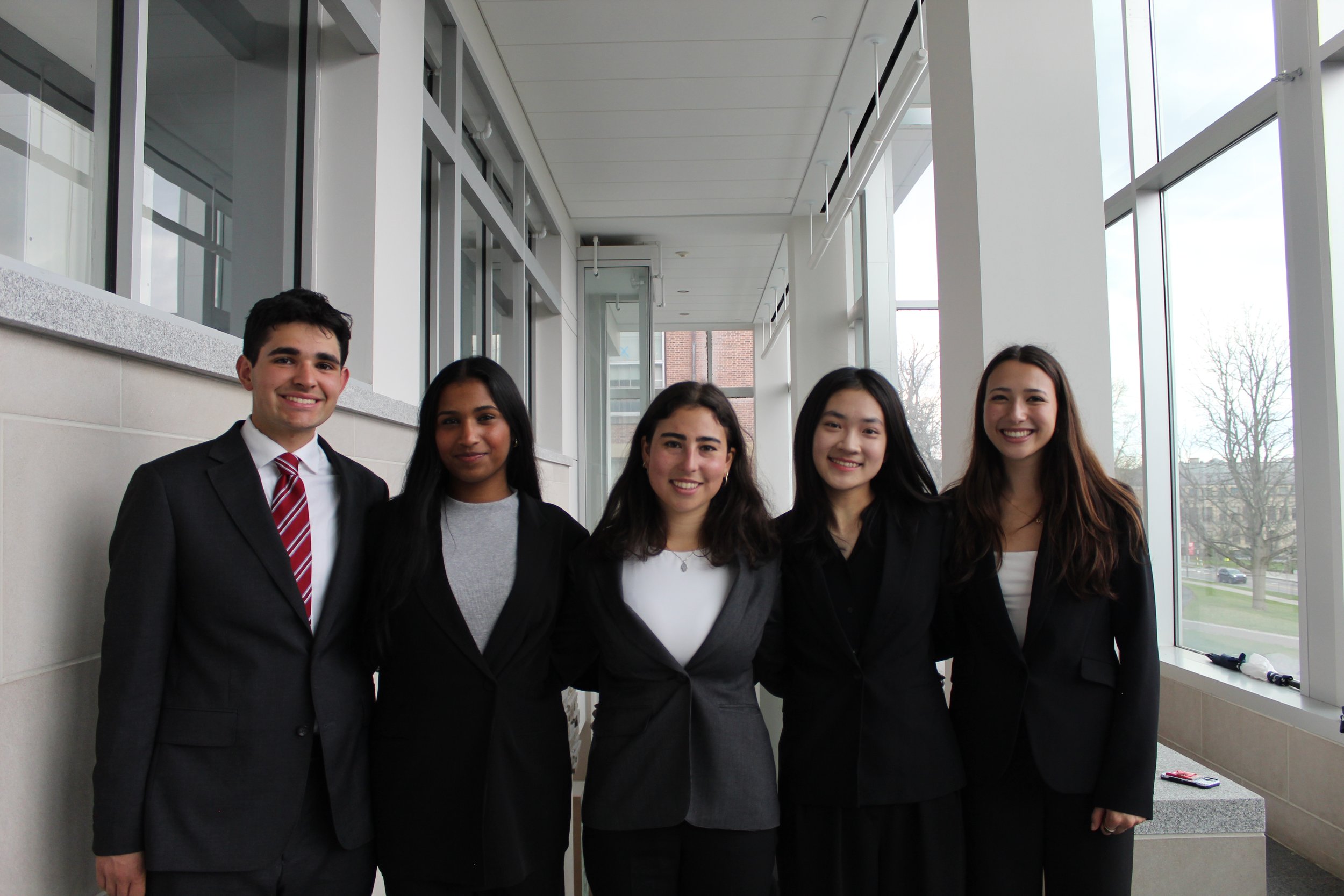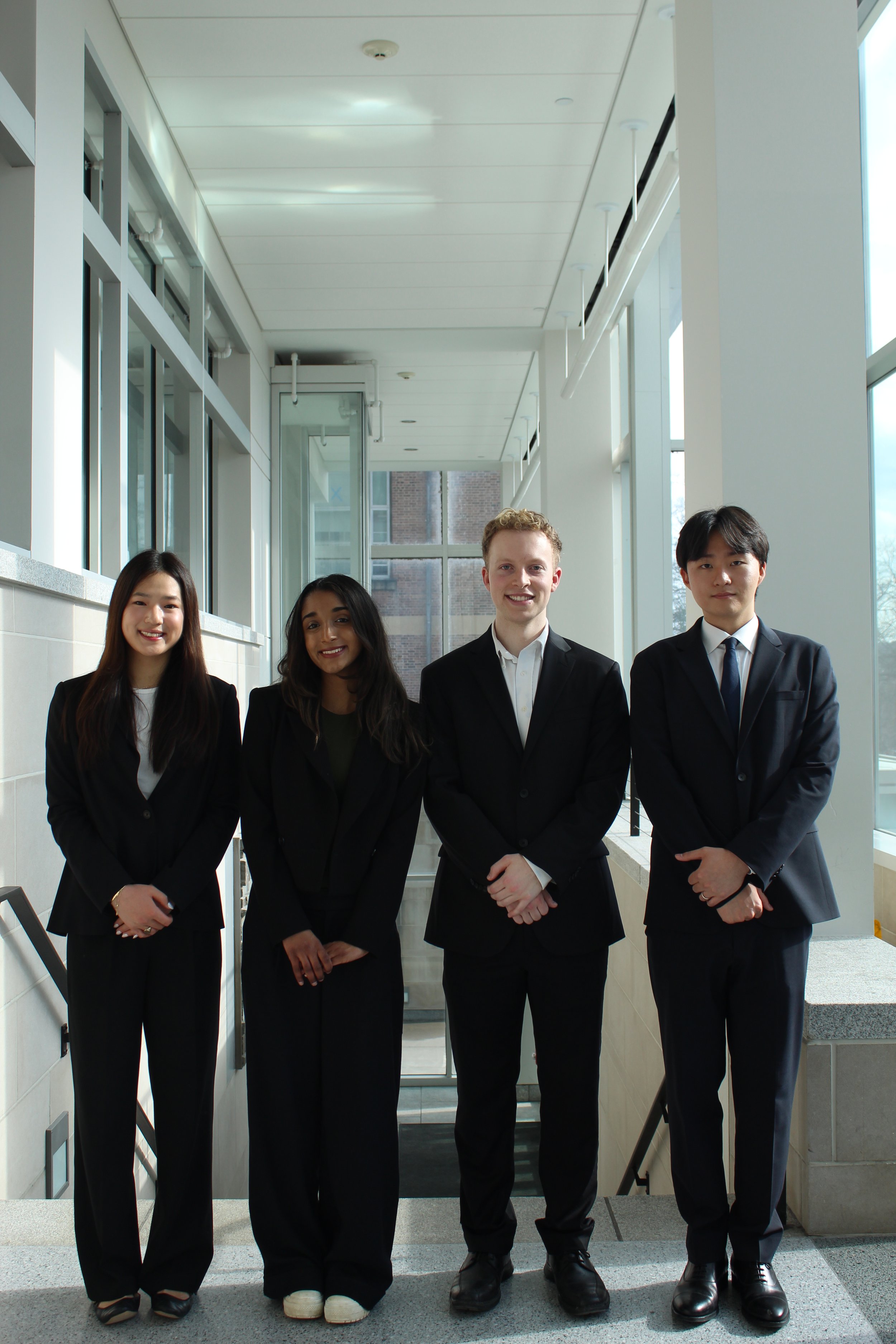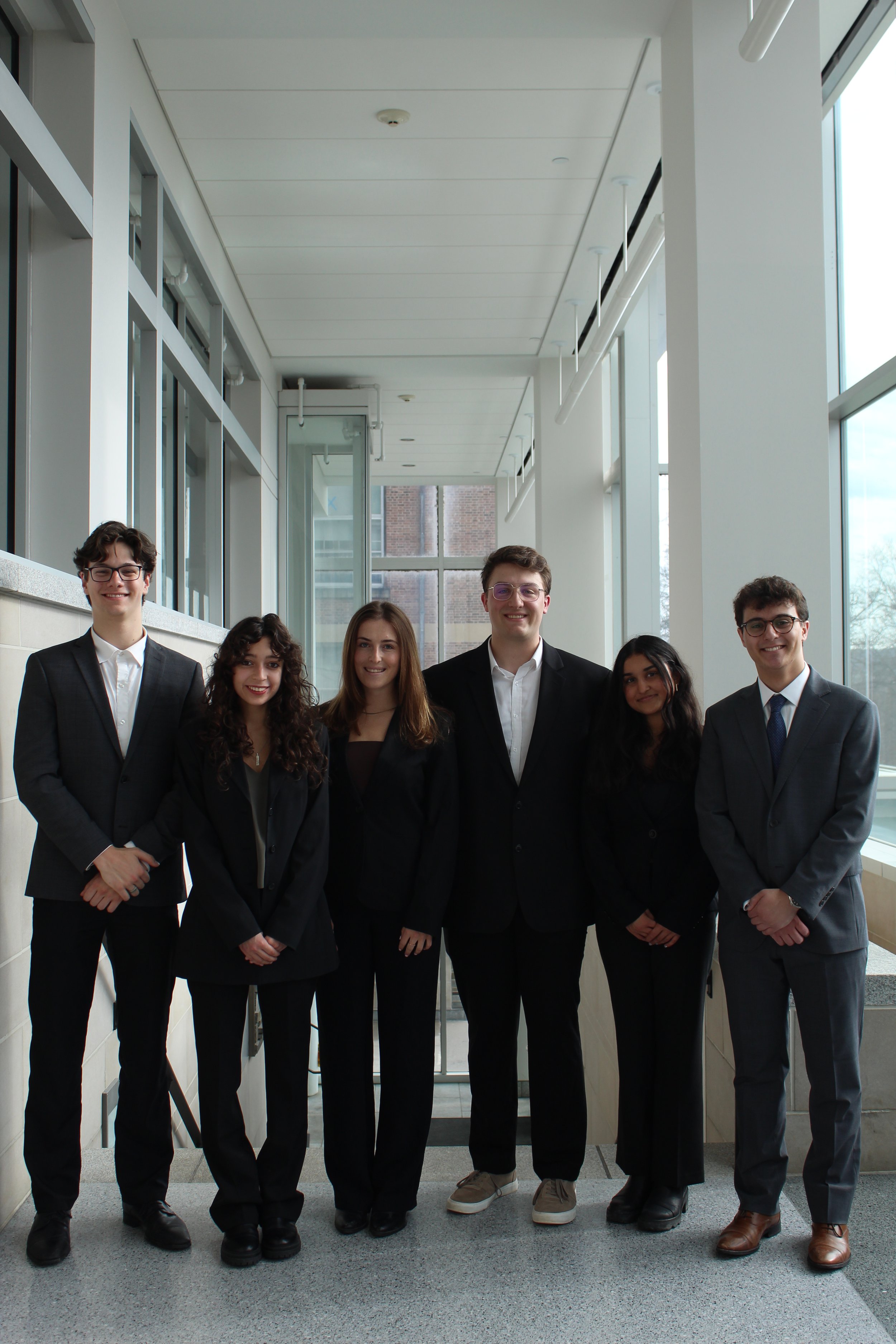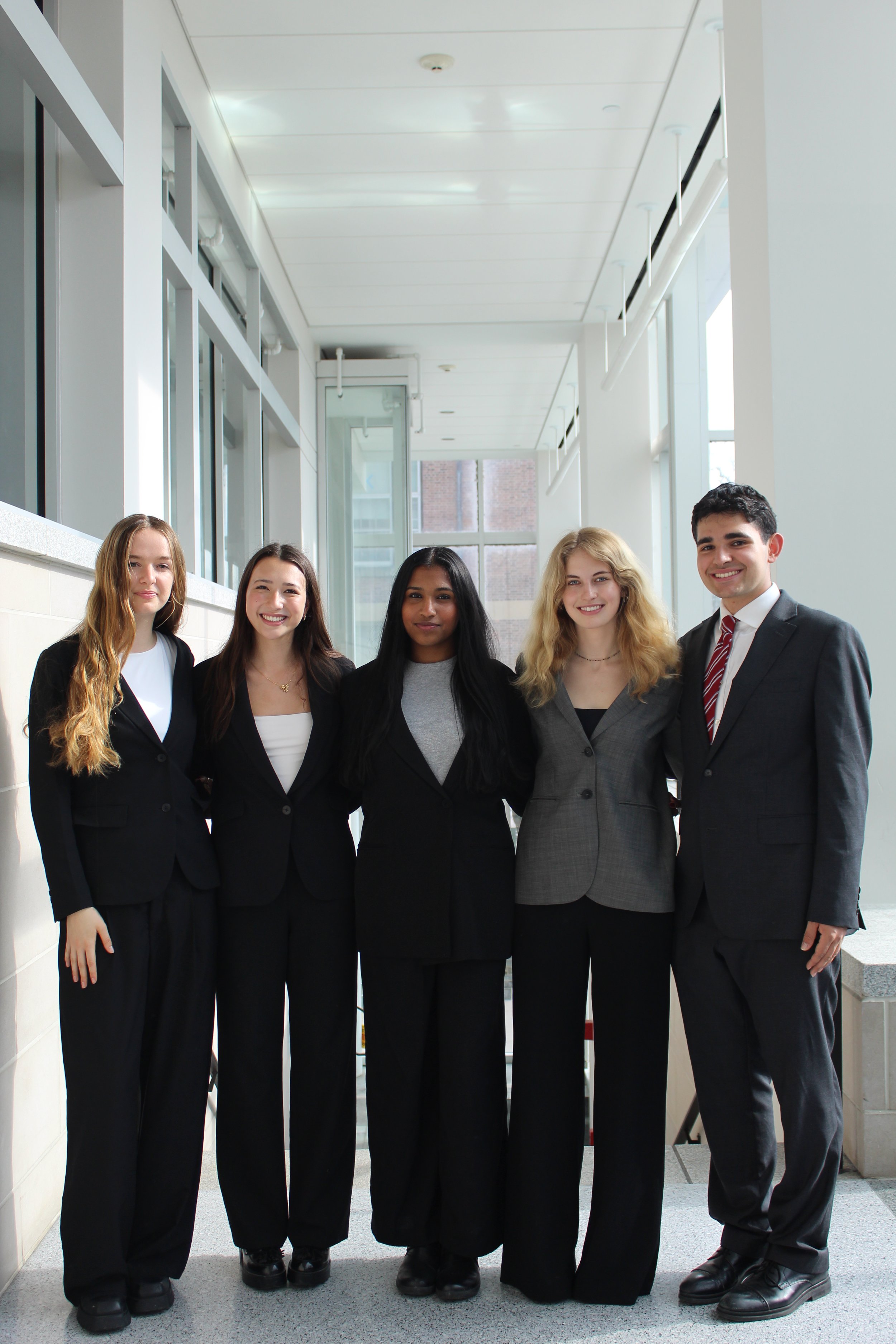Current Projects
Can Carrier Reuse
Can Carrier Reuse will work with local breweries to reduce plastic waste by promoting the recycling and reuse of can carriers. Since receiving the Sustainable Finger Lakes mini-grant, we plan to implement a functional can carrier reuse program in the Ithaca area, in collaboration with Greenstar and Personal Best Brewing. Our team will conduct market research to identify participating breweries, track key performance indicators to measure sustainability impacts, and create a comprehensive communication system between local businesses and customers via Listserv. We will plan the program's logistics, such as determining drop-off locations and mapping out the participating breweries. Additionally, we will also explore funding opportunities through grants to support the program's long-term infrastructure.
Carbon Calculators
The Carbon Calculators team consists of undergraduate students who seek to analyze and reduce the carbon footprints of small to midsize businesses. Using extensive data and proprietary Excel-based emissions tools, we calculate CO2-equivalent emissions and advise on mitigation strategies. Carbon Calculator’s goal is to provide pro-bono environmental consulting services to small businesses who may not be able to pay for professional evaluations as they strive towards becoming Carbon Neutral. Currently, we are working with an environmental services startup, IndieClime, to provide expertise into emissions quantifications for small businesses. This semester, we will also be looking to work with local establishments in Ithaca, including Gimme Coffee! and Watershed.
Sustainable Tourism
The Sustainable Tourism team partners with destination stakeholders to measure and reduce the environmental impacts of tourism through data-driven analysis and practical decision-support tools. This project focuses on supporting the Tompkins County Tourism Program by developing a transparent methodology to estimate visitor-related carbon emissions and translate those findings into actionable insights for long-term sustainability planning.
This semester, the team is advancing the Visitor Carbon Footprint model by refining tourism-specific emissions factors and structuring clear emissions buckets across travel modes, lodging, stay length, and activities. Work includes improving data assumptions, standardizing units for comparability, and validating the modeling approach early with stakeholders. In parallel, the team is developing a concept-level prototype of a visitor carbon calculator and assessing partnership opportunities to support future implementation, integration into tourism messaging, and eventual deployment as a pilot product.
Sustainable Beverage
The Sustainable Beverage team works to improve sustainability in breweries and wineries of the Finger Lakes region by providing individualized business progress strategies on best practices through industry-specific research. The team synthesized a comprehensive report detailing best practices and current trends regarding sustainability in the brewing industry.
Sustainable Beverage will work with a beverage company to develop its sustainability initiatives and market to its consumers. Once we have acquired a client, we will take a site visit to learn more about the business. From there, we conduct research on the areas requested by our clients and provide actionable recommendations. These suggestions can include certifications, marketing, renewable energy, waste management, and more. At the end of the semester, we will provide one final report to be presented to the client.
Sustainable Branding
The Sustainable Branding team is dedicated to amplifying the sustainability stories of environmentally conscious companies. By developing effective marketing, branding, and outreach strategies, the team helps businesses achieve their sustainability goals.
This semester, the Sustainable Branding team is continuing its collaboration with Earth Matters to support the national expansion of their climate change-themed board game. By leveraging past market research and analyzing existing campaign performance, the team will develop a strategic marketing and outreach plan aimed at reaching key target demographics. The goal is to amplify Earth Matters’ mission of promoting climate change education through engaging, educational tools, while helping them grow their impact and visibility across the country.
Sustainable Commerce
The Sustainable Commerce team is continuing our work from the last two semesters for the Ithaca Farmers Market’s Zero Waste Project. Previously, we focused on creating a sustainability audit to quantify the kg of CO2 and gallons of organic waste diverted as a result of the market’s sustainability efforts. Additionally, we implemented a weekly newsletter installment to educate patrons and community members about the project. We look forward to continuing our marketing efforts and wrapping up our work with the IFM this semester.
Solid Waste Environmental Excellence Performance (SWEEP)
The SWEEP team works with LEED Green Building Rating System founder Rob Watson on a second standard for sustainable materials management: the Solid Waste Environmental Excellence Performance (SWEEP) standard. This standard enables institutions to achieve accreditation for exemplary solid waste management practices. The team develops calculators that help certifying entities achieve specific credits needed in the certification process (ex: fleet fuel-use efficiency) and analyzes current solid waste management practices at Cornell to inform the standard’s design.
This semester, members are working to develop the SWEEP Campus Standard, which may be adopted by campuses across the nation. Members are currently conducting a gap analysis to assess Cornell University's readiness for SWEEP Standard adoption and identifying key improvement areas that will facilitate its first university implementation.
Renewable Energy
Renewable Energy is a new sub-team this semester that will be partnering with Tompkins Green Energy Network (TGEN) as they enter the beginning steps of introducing a new Community Choice Aggregation energy system in Ithaca. TGEN, consisting of representatives from the Town of Ithaca, the City of Ithaca, and Local Power LLC, is now focusing on Community Outreach and Engagement in Ithaca, to properly inform residents of the new energy system, and encourage them to opt-in. This semester, CSC’s Renewable Energy Team will be taking part in this process by creating public-facing creative educational materials, designing the TGEN website, identifying and engaging with key stakeholders and organizations in the community, and conducting data analysis to measure the awareness and participation of Ithaca residents in the CCA program.







